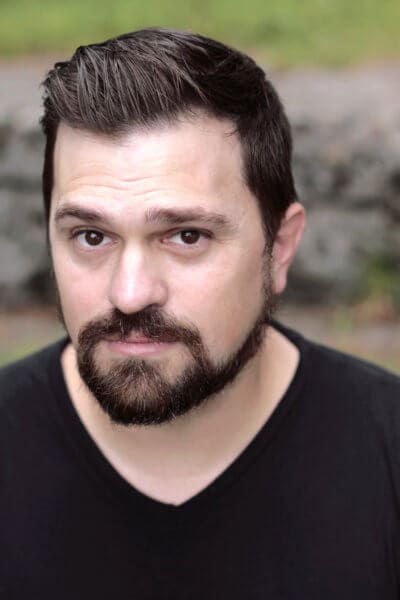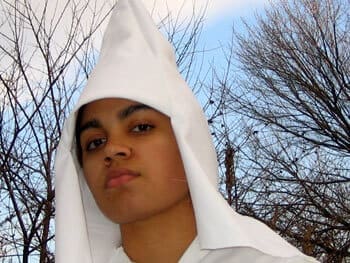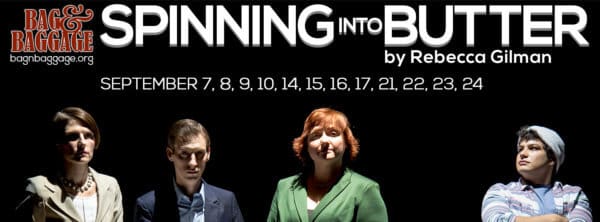- Skip to primary navigation
- Skip to secondary navigation
- Skip to main content
- Skip to primary sidebar
Embodying Cruelty: Peter blogs on Spinning into Butter
 Embodying Cruelty
Embodying Cruelty
by Peter Schuyler
When I first read my copy of Spinning Into Butter, I was deeply uncomfortable. I knew I’d be playing Burton Strauss, who in the popular interpretation of the piece, is an old, oblivious, hyper-privileged Humanities professor at a lily-white liberal arts college. I admit I wasn’t too hyped up to have his thoughts come out of my mouth.
As actors, we’re largely trained not to judge our characters and their choices, but to strive to embody them, living their truth and delivering a three-dimensional performance to serve the larger story. That can get super challenging when your character is say, a serial killer, a sleazy politician, or in this case, a well-meaning racist elite who thinks jokes about Ayn Rand and her views on social work are somehow acceptable office banter.
The week before we started rehearsals, I was having serious misgivings with each re-read, finding new levels of absent-minded cruelty and overt maliciousness coming from Burton in each of his scenes. I judged this guy. I didn’t like this guy. His 11th-hour monologue about a racist children’s story made my skin crawl. How the hell was I going to get past this and get to work?
And then I remembered Thomas Bradshaw.
Exactly 12 years ago, I was in a converted auto shop in Brooklyn, NY with no back door, the entrance blocked by a crowd of very, very angry people screaming blue murder at me. I was genuinely afraid for my safety.
I was performing the role of Strom’s Thurmond father in Bradshaw’s Strom Thurmond Is Not a Racist/Cleansed. The show is a biting satire on race relations in America, the hypocrisy of one of its leading conservative figures, and the loss of identity in the face of hate speech. It was brutal. If you google it, odds are you’ll find some promotional imagery for the show:

We were really challenging the audience with this piece, the way Bradshaw does in all his shows. Early in the show I had to deliver the most vile, racist and degrading speech I’d ever encountered in my young life – running a horrific gamut of impugning the memory of Booker T. Washington, to calling for the supremacy of the white race, and the subjugation and re-enslavement of black people everywhere.
Point being, this was not a nice guy I was playing. He was ugly, sinister, and unapologetic about his hatred of an entire people. He was thunderously overt and violent in opinion and action – seeing himself as true hero of the white race. But strangely, I don’t recall having the same difficulty creating that character and memorizing those speeches as I am facing with Burton Strauss.
Why? What was so upsetting to me about this new character?
Simple. It’s because he is too familiar. I’m sad to say that I recognized him and his world immediately because it is very like my own. He reminds me of my own slow and fumbling evolution toward being an ally to my friends of color, my LGBTQ friends and family, to my wife, to my daughter. He reminds me of every time one of my well-meaning liberal friends has taken potshots at other races when the room is all white. He reminds me that I’m not woke, that I’m still not getting the pronouns right, that I still have difficulty imagining that people have experiences that don’t mirror my life, that I still have miles to go before I sleep.
I will get there. I will get up on stage and tell Burton’s truth — however vile I find it. I will do this because it’s a moral imperative to do it. I will do it to help shed light on the places within in ourselves that we don’t want to confront. I will do it.
And then I will take a shower. Because this dude is gross.


Reader Interactions